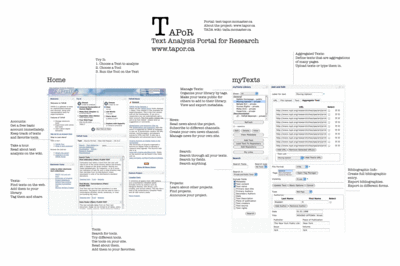The cultural record is currently fragmented over more or less arbitrary institutional boundariesÔø? for example, the relevant materials for understanding one artist will be held in a dozen different museums, twenty libraries, and ten archives. The resources required for work in the humanities and the social sciences are comprehensive, diverse, and complex, yet these resources are often destroyed, censored, redacted, restricted, or suppressed. When they survive, they are often to be found far away from the site of their creation and use, carried off as spoils of war, relocated in a museum, or hidden away in private collections. At present, we have the opportunity to reintegrate the cultural record, connecting its disparate parts and making the resulting whole available to one and all, over the network.
The ACLS: Cyberinfrastructure Commission has prepared a draft report for the American Council of Learned Socieities’ on Cyberinfrastructure for Humanities and Social Sciences. (Follow link to PDF.) It is an admirable document that makes the explicit case for infrastructure for digital work in the humanities (and social sciences.) I’ve only skimmed it, but it strikes me that what we have had to do through CFI in Canada they are proposing to do systematically. They position the digitization of the cultural record as “a true grand challenge problem”. (They even quote Tony Hoare from the UK on what makes for a grand challenge. See CRA Grand Research Challenges 2002.) We should be so bold!
